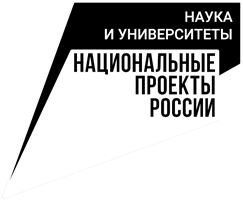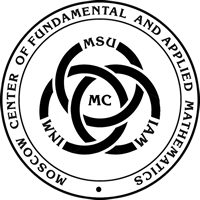PROGRAM
11:00 (GMT+3)
| Prof. Chao Zhou | College of Engineering, Peking University, Beijing, China |
|
Bio: Chao Zhou is a tenured associate professor and the director of turbomachinery laboratory at the college of Engineering in Peking University, China. Before join Peking University, he obtained his doctorate degree at the Whittle Laboratory of Cambridge University in 2010. He is also educated in Nanjing University of Aeronautics and Astronautics, China, and received his Master degree and Bachelor in 2006 and 2003 respectively. His main research area is the aerodynamic and heat transfer of turbomachinery, including aerothermal performance of high pressure turbines, high-lift low pressure turbines; inter-turbine duct flows, unsteady flows and loss mechanism of turbomachinery, advanced cooling methods and highly loaded compressors. He has published 9 papers on the Journal of Turbomachinery, which is the top Journal in the research area. Dr. Zhou is a member of ASME IGTI Tubomachinery committee. He serves as the review co-chair of 2020 GPPS (Global Power and Propulsion Society) conference. |
|
The Aerothermal Performance of Tip Leakage Flow in High Pressure Turbines.
Future aero engines are expected to achieve higher efficiencies and lower emissions, which brings new challenges for turbine designers. In a high-pressure turbine, tip clearances exist between the turbine rotor blade tip and the casing to prevent rubbing. The pressure difference between the blade pressure side and the suction side drives the gas across this tip clearance gap. The high-temperature gas results in excessively high metal temperatures on the blade tip, which lead to thermal erosion and oxidation. Obtaining good aerothermal performance is the key to maintain the performance of the high pressure turbines. The current talk will present a combined experimental and numerical study, which aims to understand the performance of the tip leakage flow and to develop new tip configurations for higher engine efficiency. First, the aerodynamic and heat transfer performance of squealer tips will be discussed. The effects of the squealer height and thickness will be investigated. Then, the tips with coolant injection are investigated to understand the effects of the cooling air on the loss mechanism and tip heat transfer. Finally, winglet configurations are used on blade tips to reduce the tip leakage loss. The results showed that by using the winglet tip developed in the current study, the turbine stage efficiency increases.
12:00 (GMT+3)
| Dmitrii Georgievskii | Lomonosov Moscow State University |
|
Bio: Dmitrii Georgievskii received his PhD degree at MSU, 1989, and DSc degree at MSU, 1996. He is a Professor of Russian Academy of Sciences since 2015and is a Chair of Lab. of Elasticity and Plasticity in Institute of Mechanics (MSU) since 2020. His research interests include the Theory of constitutive relations in continuum mechanics, Phenomenological description of stress-strain state by multiscale simulation, Asymptotic methods in theory of thin solids, see also web-page http://mech.math.msu.su/~georgiev/first_e.htm for more details. |
|
Mathematical Models of Mediums in Continuum Mechanics.
Elements of the theory of constitutive relations. The tangent modulus and the tangent compliance. Physical nonlinearity, tensor linearity (quasilinearity), and nonlinearity. The material functions. Rheonomic and scleronomic media. Homogeneous and inhomogeneous media. Composites. Elastic bodies. Viscous liquids. Media with memory. Non-local media. Tensor functions and their invariants in the theory of constitutive relations. Potential media and conditions of potentiality. Incompressible materials (liquids).Nonlinear elastic-viscoplastic models. Classification of incompressible media (quasilinear models, Bingham bodies, perfectly plastic media, Newtonian viscous fluids). Statement of the linearized boundary value problem of flow stability with respect to small perturbations of the initial data.
The workshop session will take place in the form of a webinar on the Zoom platform.
Pre-registration for the event is not required.
To join Zoom meeting(You can join in the meeting without a phone number):
https://zoom.com.cn/j/63780031309?pwd=cTVIeldxZms4cXo0MzRsS0ZBVXQ2dz09
Meeting ID : 637 8003 1309
Password:037788
Instructions for installing and using the Zoom platform are available here:
https://support.zoom.us/hc/ru/articles/201362033-Начало-работы-на-ПК-и-Mac

